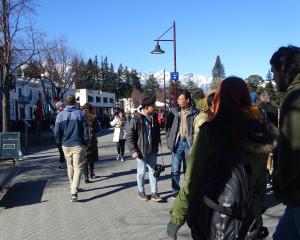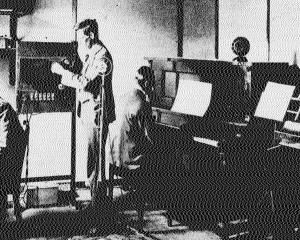
So, the great New Zealand farmers’ meat processing ownership adventure is finally over with the sale of the last survivor, Alliance, to Dawn Meats.
Dawn Meats is a company founded in 1980 by three Irish farmers. The business has grown since then by a process of reinvestment and acquisition to become one of the world’s leading meat processing and marketing concerns.
Ownership of Dawn Meats, unlike almost every New Zealand company of similar recent history and performance (Barkers Fruit Juices, Icebreaker etc.), is still closely held by the founding households. Consequently, it still returns its profits to its controlling community of origin.
Alliance (Ireland) now joins the ex-farmer owned entities AFFCO (New Zealand), ANZCO (Japan) and SFF (China) under corporate control.
The loss of control of processing and value added for one of our key export products to a largely foreign controlled corporate oligopsony (small group of buyers) is likely to have significant negative consequences for this country over the longer term.
The directors of these companies have a responsibility to maximise the returns stemming from the production and distribution of New Zealand’s meat to their own shareholders — and they will surely do so.
These efforts may be restricted to simply operating as an oligopsony, but the enhanced profit extraction opportunities that would be offered by operating as a cartel will surely be tempting. This temptation is likely to be exacerbated by the New Zealand government’s dismal record of indifference to the economically detrimental operations of cartels in this country since 1985.
The farmer-founders of these meat processing entities and the New Zealand government appreciated this risk, and they worked hard to avoid the formation of such offshore-held meat processing/exporting oligopsonies between 1885 and 1985. They had the terrible example of the Vestey-led meat-buyer cartels operating in Latin America and elsewhere to spur them on in these endeavours.
By 1940 these highly lucrative international wealth-transfer activities, which included paying aboriginal meat workers in Australia one quarter of the minimum wage, or not at all, had made Lord Vestey the second-wealthiest man in Britain after the King.
The post-1985 neoliberal revolution in New Zealand put an end to these communal efforts.
In overseas boardrooms, this led to a rapid appreciation of the long-term profit opportunities that were now offered to them by neoliberal New Zealand’s near-suicidal levels of indifference to strategic economic risk in its primary production sector.
These two events made the outcome that we have today in New Zealand’s meat industry almost inevitable.
In 1980 Alliance was one of the world’s largest meat processor/exporter concerns, while Dawn Meats was three Irish farmers having a serious talk in a paddock. It is worth asking why their trajectories over the last 45 years have been so different.
Two salient reasons suggest themselves:
• Alliance’s co-operative structure: Joint stock companies are overwhelmingly used by wealthy economies to house their collaborative economic activity. Co-operatives are a comparative rarity, and there is a good reason for this. Humans are normally greedy, stupid, selfish and short-sighted when it comes to money.
Companies, uniquely, can cope with these base motives and yet still support long-term stable communal investment that delivers growth and development.
They do this by exploiting what might be described as the "balance of greed". If we say that a company makes $100 profit, then the natural, selfish and short-sighted thing for the company’s owners to do would be to grab it all there and then.
However, if reinvesting $50 of this profit back into the company increases its profit to $110 in all subsequent years, then value of the company’s shares will increase by the net present value (NPV) of that additional $10 cash stream in all subsequent years — let us say this NPV is $110. The owners who simply grab all the profit are $100 richer.
However, those owners who reinvest are $50 + $110 = $160 richer, due the capital gain of their shares.
The wealth of our society rests on centuries of reinvestment in companies as an outcome of their capacity to reward restraint and reinvestment by capital gain.
The problem with most co-operatives is that their shares are not freely tradeable, which makes it impossible for them to offer capital gain as a counterbalancing motivation to short-term greed.
Consequently, co-operatives usually suffer from chronic underinvestment and excessive profit-take by their owners.
Alliance was no exception to this rule, which explains most of its underperformance relative to Dawn Meats.
2) Diffuse ownership: The Irish Companies Register indicates that Dawn Meats is a "private unlimited company". This is an unusual arrangement that exposes its owners to unlimited joint and several liability for the company’s debts.
Whatever the reasons are for adopting this structure, three deductions can be drawn from it.
Firstly, that there are not many owners of Dawn Meats; secondly that these owners have a very high degree of confidence both in each other and in their individual and joint capacity to effectively direct the management of the company; thirdly they all have a strong and effective interest in the performance of management.
None of these three observations apply collectively to the 4000+ farmer owners of Alliance. The outcome has been mutual hostility and distrust between owners and management, which led to both governance and managerial ineffectiveness.
These shortcomings have been noted by many other commentators in addition to this writer.
They have been a persistent feature of this country’s larger primary product co-operatives.
Dawn Meats’ owners will therefore undoubtedly bring cultural change to Alliance. Some of Alliance’s directors and managers will thrive and survive in this demanding environment — many will not. The same goes for their suppliers.
Meanwhile in some paddock, three New Zealand farmers might be having a serious talk about how to reinvest their Alliance payout in order to avoid the consequences of their peers’ recent decision.
Dawn Meats shows that, with the correct ownership structure and discipline, anything can come from such conversations.
• Robert Hamlin is a senior lecturer in marketing at the University of Otago. He was once a supplier/member of a meat marketing co-operative operating in an unregulated market.










